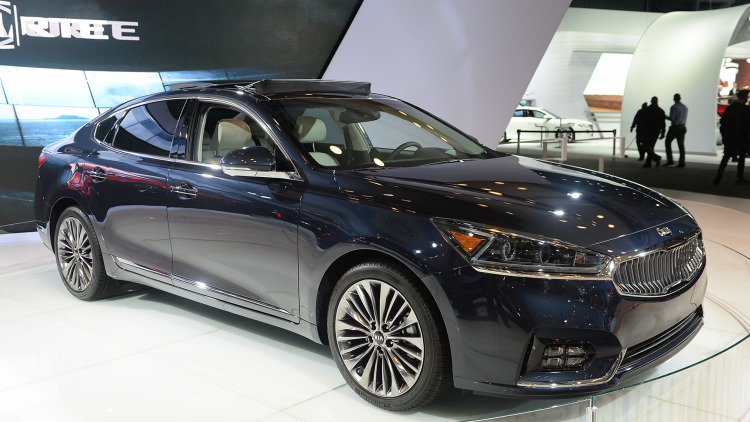2017 Kia Cadenza Is A Redesigned Head Scratcher

The Cadenza has been on sale since 2013 and it's never sold over 10,000 units in one year. Even if you combine US and Canadian sales, Kia's best year for the Cadenza was 2014, where it sold just 9,427 cars.
So, what's Kia done to the second-gen car to improve on that disappointing stat? Perhaps the biggest change is the platform the Cadenza rides on. It's lighter and stiffer, which means it's probably going to be a far better dancer than the boat-like first-gen model. Cutting the weight also allowed Kia's engineers to fit more sound deadening, which alongside a sound-absorbing laminated windshield and front windows will likely lead to a quieter ride. Better handling and a quieter ride? Okay Kia, we're paying attention.
The Cadenza's 3.3-liter V6 still sits under hood, but it's paired to an eight-speed automatic for the first time. That, alongside a new tune for the engine, should improve on the current Cadenza's 19-mile-per-gallon city and 28-mpg highway stats. Kia hasn't released an estimate of how much of an improvement it will be, but we suspect it'll be modest.
Frankly, we're still a bit confused about why Kia is carrying on with the Cadenza. Its rivals sell in far higher volumes – in 2015, the Nissan Maxima sold over 40,000 units, the Buick LaCrosse did 42,000, and the Toyota Avalon did 60,000 – and two of those cars, the Maxima and LaCrosse, have just been fully and completely reworked. Then take into account America's increasing disdain for sedans/infatuation with crossovers, and Kia pushing through the second-gen Cadenza is just a puzzling move. Still, the visual updates, platform improvements, and powertrain changes are positive – will that be enough to turn around the Cadenza's struggling sales? We have no idea, but things can't get much worse.
Nouvelles connexes


